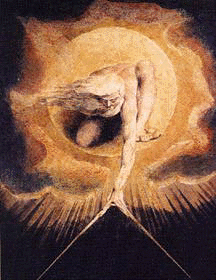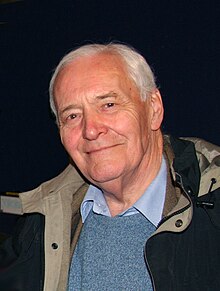A pearlised white
4 wheel drive pulls over to the corner shop in front of me. With the engine
still running, the driver sounds the horn once. Almost immediately a lean nut-brown
man steps across the threshold of the shop and hastens over to the vehicle.
After a few words, accompanied by several leisurely gestures of the hand, the
driver withdraws his head into the interior of the vehicle where he adjusts the
folds of his keffiyh. The shopkeeper has nodded his assent, swivelled and vanished
into the gloom of his premises.
Barely
a couple of minutes later he appears with a small bundle of provisions and is
ready to hand it over when the driver gestures with his thumb for the purchases
to be loaded into the boot. Task completed, the same hand emerges once more
into the sunlight, proffering notes held between thumb and digit finger, which
are accepted. Whatever the shopkeeper is saying in response for payment is
interrupted by a single gesture from the hand, unmistakeably communicating that
change is not required. The 4WD then slides away, leaving a momentary cloud of
dust behind.
All
over Doha this is a common scenario. Wealthy Qataris are served seated at the
wheel of their titanic-size vehicles by Indian, Pakistani or Philippine traders.
The drivers do not enter the premises and indeed the presence of these rather
regal figures in the cramped aisles of a neighbourhood shop would be something
of an anomaly. The brilliantly white starched thobe and the keffiyh, with its “crown”
to hold it secure, is the attire of choice for the vast majority of Qatari men,
and for women it is the burka. These traditional garments are worn not just on
formal occasions, as I had supposed prior to my arrival in Doha, but daily. Thus
dressed they convey something of the elegance and dignity for which Arabs are
renowned the world over. Dress is also a statement of their place at the
pinnacle of the highly stratified society which is contemporary Qatar.
Such
is the level of immigration in Qatar that the number of immigrants exceeds the
native-born population by around 3 – 1 in a society with approximately two
million inhabitants. The country is developing rapidly and has had to import
labour for almost every sector of the economy, particularly construction,
retail, wholesale, transport, security and domestic service. Without
these workers the country would grind to a halt. Yet reports and rumours abound
of the exploitation, outrageously low wages* and Victorian living conditions
endured by immigrants from the most poverty stricken countries. Qatar, it would
seem, is not generous with its “guest workers”.

As
a foreigner temporarily living in Doha, I belonged to the majority community in
a society populated with foreigners. I didn’t “stand out” as newcomers to new
cultures often do and neither did I have to struggle over the hurdles of a new
language since English is the lingua franca in Qatar. English is spoken widely
and apparently by almost everyone. However, Arabic is the first language and Islam
is the dominant religion. There are over 1,200 mosques in the country, many of
them recent constructions and very much state of the art. A single glance at
the skyline of Doha indicates how highly architectural creativity is valued. Another
of the architectural achievements in modern day Qatar is the Souk Waqif market
in Doha. It was constructed ten years ago on the site of the original souk and
built to resemble a traditional Arabic market place with cobblestoned streets
and narrow alleyways. It is here that spices, perfumes, jewellery, rugs, shisha
pipes, burkas and much more is sold.

On
one of my first visits I sought out the falconry souk, located away from where
the majority of animals and birds are sold. For centuries falconry has been an
intrinsic part of life for Gulf Arabs and there are about a dozen premises
which trade in these birds of prey. Hooded and tethered in the glare of
fluorescent lighting, the falcons sit patiently on their perches in a sand pit.
While one of the falcons dissects a piece of chicken for its supper the trader
tells me that these birds were captured in Pakistan, Afghanistan, Iran and Kazakhstan,
among other countries. They have not yet been trained; that is the task of the
buyer, who will pay around £5,000 for a falcon. Later I see a father and son
bearing one of the falcons on a gauntlet in the direction of the nearby Souk
Waqif Falcon Hospital, to get it checked out, they say.
Dozens
of women in burkas, some with the niqab covering their face, stroll through the
alleyways and market stalls of the souk. Often a Philippine housemaid accompanying
them is charged with the task of either carrying the youngest child in the
family or holding a toddler’s hand. Further behind, an ancient Indian or
Nepalese porter navigates a wheelbarrow loaded with the family’s purchases
through the crowds.
What
I don’t see amongst the throngs in the souk are African or Indian workers, the
men who spend their days labouring on the hundreds of construction sites in
Doha. I consciously began to look for them after noticing khaki clad police or
security guards posted at the various entrances to the souk, preventing men
with certain profiles from passing. A Nigerian construction site worker tells
me he has never attempted to enter the souk. He goes on to say that when he or
one of his workmates boards a bus in the city some passengers cover their mouth
and nose. I find this hard to believe and wonder whether this is an isolated
incident. On the one occasion when I travel by bus with him, a Philippine woman
on the seat to my right covers the lower part of her face; she keeps it covered
until she alights. As we pull away I look up through the window at one of the
many billboards in Doha carrying the promotion slogan: Qatar: We are proud of you.
Many
of the immigrants in Qatar come from other Arab nations and a significant number
of them are refugees from Syria, Palestine and Libya. One evening a Syrian
student mentions how popular camel racing is in Gulf Arab states. He tells me
that mini robots with a riding crop are mounted on the camels
and controlled by remote devices the owners operate. The robots were invented
in Qatar in response to the number of casualties among children (mainly from
India and Pakistan) who were trained as jockeys.

Three
weeks later I arrive at a camel race track at the start of the exercise period.
Very few people are around because of the dust storm which has been blowing for
two days now. About thirty camels are led out; five carry jockeys and the
remainder have robots mounted on them. The terrain is sand and at first the
camels walk briskly but soon they are in a fast trot. At the sound of a car
horn, the herd breaks into a gallop, which appears ungainly to my inexpert eyes.
A number of 4 Wheel Drives keep pace with the camels and from the passenger
seats the owners or trainers control the robots and their riding crops. The
dusty hazy atmosphere adds to the dreamlike quality of the image.
Our
travel memories are not always accompanied by narrative, images, a kaleidoscope
of images suffices. Plastic shopping bags floating on the shoreline of the
Arabian Gulf; burka-clad women sitting on deckchairs in the shallows of low
tide; a billboard warning: “Do Not Slaughter Animals outside the
Slaughterhouse”; white horses pacing a city centre corral at midnight; wooden
dhow vessels moored alongside some of the most powerful speed boats in the
world; a laughing dove hunched up against the dusty windowpane of my apartment
in a sandstorm, the endless traffic jams blocking the roads of Doha; and gazing
at the breathtaking glamour of the Doha skyline illuminated at midnight as my
flight heads northward and homeward.
*A construction
worker spoke of a monthly salary of £160.00 or around §235 USD.











